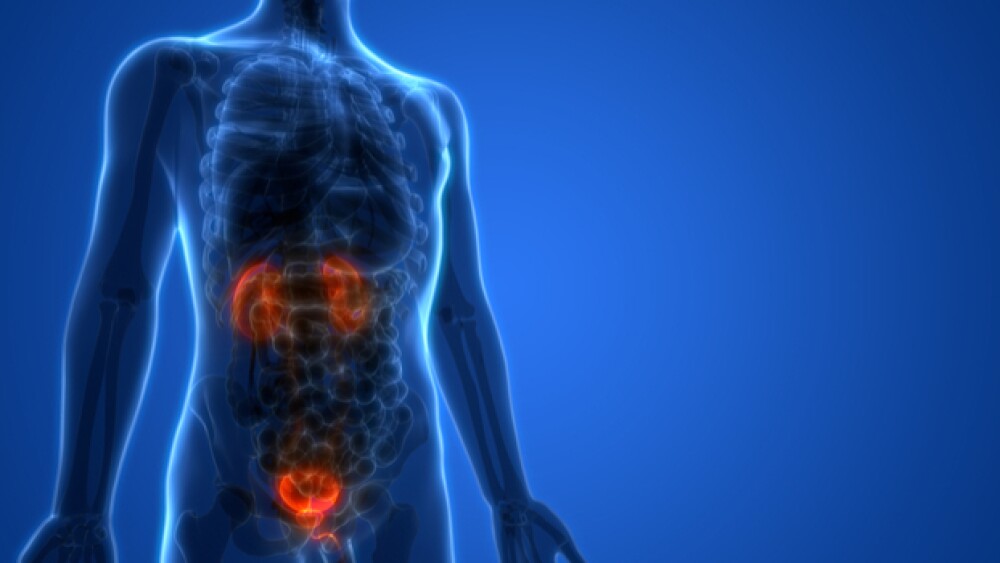Seattle Genetics and Tokyo-based Astellas Pharma announced positive topline data from the first cohort of its Phase II EV-201 trial.
Seattle Genetics and Tokyo-based Astellas Pharma announced positive topline data from the first cohort of its Phase II EV-201 trial. The trial is evaluating enfortumab vedotin in patients with locally advanced or metastatic urothelial cancer who had previously received both platinum-based chemotherapy and a checkpoint inhibitor.
Enfortumab vedotin is an antibody-drug conjugate (ADC) targeting Nectin-4. Nectin-4 is highly expressed in urothelial cancers, as well as other solid tumors. The drug received Breakthrough Therapy designation by the U.S. Food and Drug Administration (FDA) based on results from a Phase I (EV-101) clinical trial.
An ADC is a class of therapeutics where a cancer drug is attached to a specific antibody using a biodegradable linker molecule. The idea is to decrease the effects of the chemotherapy on healthy cells while maximizing the cancer cells’ death. In other words, it’s a way of delivering the chemotherapy directly to the cancer cells instead of systemically.
Based on the most recent results, the companies plan to submit a Biologics License Application (BLA) to the FDA later this year. A Phase III trial (EV-301) is already in process and planned to support global registration and act as the confirmatory randomized trial for the drug in this same indication.
“Despite recent approvals of multiple checkpoint inhibitors for previously treated locally advanced or metastatic urothelial cancer, there remains a high unmet need for effective treatments upon progression after initial chemotherapy and immunotherapy,” stated Roger Dansey, Seattle Genetics’ chief medical officer. “These results for enfortumab vedotin indicate it may be able to help patients whose urothelial cancer progresses following treatment with standard chemotherapy and a PD-1 or PD-L1 inhibitor.”
The results of the EV-201 trial showed a 44 percent objective response rate (ORR) according to a blinded independent central review. The duration of the response was consistent with results from the Phase I trial.
The most common adverse events were fatigue, alopecia (hair loss), decreased appetite, rash and peripheral neuropathy.
Urothelial cancer represents about 90 percent of bladder cancer cases. In the U.S. in 2018, more than 82,000 people were diagnosed with bladder cancer. Around the world, about 549,000 were diagnosed with bladder cancer in 2018, with about 200,000 deaths reported.
About 80 percent of patients do not respond to PD-1 or PD-L1 checkpoint inhibitors after a platinum-based therapy has failed as a first-line treatment for advanced bladder cancer. There aren’t any approved therapies for metastatic urothelial cancer once it has progressed after chemotherapy and a PD-1 or PD-L1 inhibitor.
Seattle Genetics has one ADC already on the market, Adcetris. On February 11, Adcetris triggered a $30 million milestone payment from Takeda Pharmaceutical Company when it received approval from the European Commission to extend the marketing authorization of the drug to include Adcetris in combination with AVD (Adriamycin, vinblastine and dacarbazine) in adults with previously untreated CD30+ stage IV classical Hodgkin lymphoma (HL).
Late last year, in September, the Japanese Ministry of Health, Labour and Welfare approved Adcetris with AVD for the same indication. In March 2018, the FDA approved Adcetris in combination with AVD for adults with previously untreated Stage III or IV classical HL.





